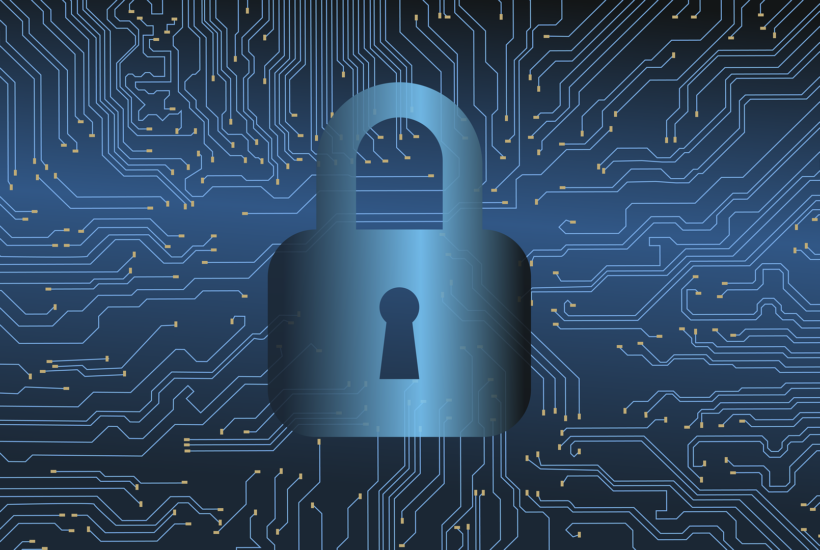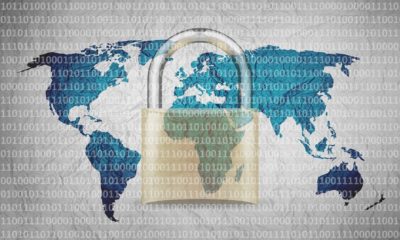Business
How can your business handle cybersecurity during a pandemic
Oftentimes people don’t worry about cybersecurity until they’ve been breached. It will cost a lot less to stop this problem before it happens. Former FBI operative O’Neill suggests companies that have the means to supply their remote staff with computers that have cybersecurity software preloaded should do so immediately. Don’t ever send money or give personal information over email.

In times of crisis, some people see opportunity in the chaos. And not always in a good way. Whenever there is an international or national crisis making headlines there is also a spike in cybersecurity threats. We just so happen to be in the midst of not one, but two wide-spread conflicts, so it’s time to double down on our cybersecurity.
When a crisis hits, people want information fast. They feel an anxious need to stay up to date on the latest findings and advancements. Common sense goes out the window as fear overrides our logic and reasoning, making us more susceptible than ever to a cyber attack. Hackers and cyber terrorists do quick social media scans and send malware and phishing scams with subject lines they know will grab you based on your interests. They use fake emails that appear to be from credible sources so you’ll feel comfortable opening a harmful email.
You may see an email from a fake WHO address with the subject line “All states must open all public restaurants and bars.” For most of us who have been eager to return to our lives outside the home this would spark enough interest to at least convince us to open the email.
On top of the crises at hand, we are left even more vulnerable than usual since a large portion of the nation is working from home on personal devices. This leaves a huge opening for hackers to gain access to your company’s data.
National Security Strategist for VMWare Carbon Black and former FBI operative Eric O’Neill and retired FBI Executive and Silicon Valley cybersecurity leader MK Palmore have a few pointers for keeping your data safe during this pandemic.
Be active, don’t be reactive
Oftentimes people don’t worry about cybersecurity until they’ve been breached. It will cost a lot less to stop this problem before it happens. O’Neill suggests companies that have the means to supply their remote staff with computers that have cybersecurity software preloaded should do so immediately. If you can’t do this, the next best precaution is to purchase the safety software for your employees’ personal devices. Many of these solutions are cloud-delivered and can spun-up relatively quickly.
You may be inclined to spend your limited budget elsewhere, but that thought quickly fades when O’Neill walks you through the ransoms, extoritions, and blackmailing he has seen cyber hackers and terrorists use. Trust the expert and listen to O’Neill when he says, “Be active, don’t be reactive.”
Once you have secured your devices, Palmore wants us to use our common sense. He reminds us to keep them updated. With an outdated operating system, hackers can find ways past your anti-virus protection. He also warns against connecting to wifi that isn’t secure. That means everyone working from the recently opened coffee shops should be using a VPN solution to ensure secure remote connections, especially when accessing sensitive data.
Train to be a spy hunter
After catching cyber spies for the FBI, O’Neill knows what it takes to be a real spy hunter. We may not be on his level of mastery, but both O’Neill and Palmore say there are a few things the public should be doing to protect themselves from cyber-attacks.
Set up two-step authentication on all your emails and apps. It may be a slight inconvenience but it will protect you from anyone trying to access your accounts from halfway around the world.
Backup all your info to the cloud and, if you’re really good, have another drive on-premise.
Don’t ever send money or give personal information over email.
Hackers will create a false email with your bank or healthcare provider in the name. It will be ever so slightly misspelled or different from all the other emails associated with the establishment. If you see this exit out of that browser and either call the company or login to your account to speak with them directly.
Double click the sender’s email to see the true email address. They can manipulate how their email appears and hide behind the fake emails I just mentioned. Double clicking on the email address will show the real email.
Check for spelling and grammar errors. A lot of hackers are rushing or don’t speak English as their first language. This can be a tip off, since official emails are generally error free.
Never open an attachment or click a link from a questionable email address. This is how they infiltrate your computer. The worst part about cyber attacks is that the hacker can sit dormant for months gathering your data before they make themselves present.
During these uncertain times, don’t add “PAY RANSOM TO CYBER HACKER” to your to-do list. Listen to the experts and protect yourself before it’s too late.
—
(Featured image by VIN JD via Pixabay)
DISCLAIMER: This article was written by a third party contributor and does not reflect the opinion of Born2Invest, its management, staff or its associates. Please review our disclaimer for more information.
This article may include forward-looking statements. These forward-looking statements generally are identified by the words “believe,” “project,” “estimate,” “become,” “plan,” “will,” and similar expressions. These forward-looking statements involve known and unknown risks as well as uncertainties, including those discussed in the following cautionary statements and elsewhere in this article and on this site. Although the Company may believe that its expectations are based on reasonable assumptions, the actual results that the Company may achieve may differ materially from any forward-looking statements, which reflect the opinions of the management of the Company only as of the date hereof. Additionally, please make sure to read these important disclosures.

-

 Impact Investing1 week ago
Impact Investing1 week agoFrance’s Nuclear Waste Dilemma Threatens Energy Future
-

 Fintech7 days ago
Fintech7 days agoKraken Launches Krak: A Game-Changing Peer-to-Peer Crypto Payment App
-

 Africa2 weeks ago
Africa2 weeks agoAgadir Welcomes Nearly 570,000 Tourists by May 2025
-

 Impact Investing2 days ago
Impact Investing2 days agoEuropeans Urge Strong Climate Action Amid Rising Awareness and Support

























